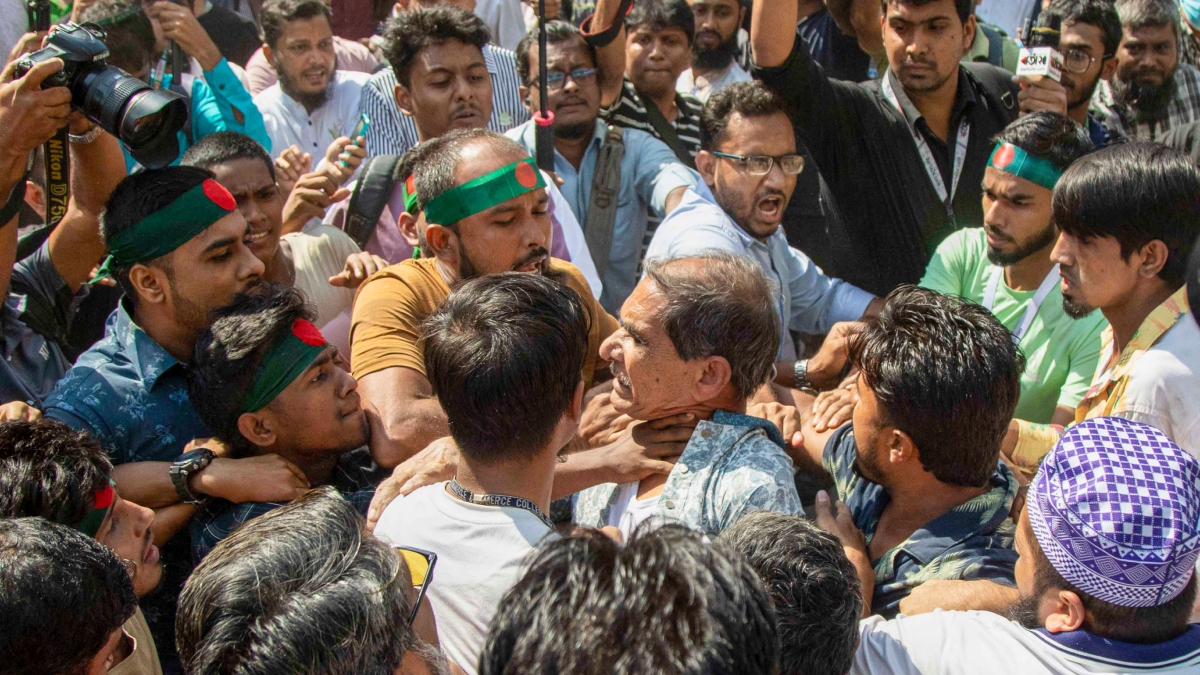Muhammad Yunus, the chief advisor of the interim government in Bangladesh, addressed the nation on Sunday on the completion of 100 days of his administration. The Nobel laureate discussed key issues, including efforts to revive the country’s economy, hold elections and ensure justice for everyone who suffered atrocities during the July-August protests.
Most importantly, Yunus highlighted the interim government’s plan to extradite former Prime Minister Sheikh Hasina, who was forced to leave Bangladesh due to the protests, from India. He also dismissed reports about attacks on Hindu minorities as "exaggerated propaganda," attributing the “sporadic incidents” to political, not communal, motives.
The 84-year-old microcredit and microfinance pioneer highlighted Bangladesh's strengthening geopolitical relationships worldwide. Even though he did not put enough stress on it, during the 100 days of his leadership, Pakistan has notably emerged as the country with which Bangladesh's ties seem to have improved the most.
This marks a significant shift in relations between the two nations, which had reached a historic low under Hasina. Demanding an official apology from Pakistan, her administration prioritised justice for the 1971 Liberation War genocide, prosecuting razakars (Bangladeshis who collaborated with Pakistan) and banning the pro-Pakistan Jamaat-e-Islami party with uncompromising resolve.
But recent developments during the interim government’s 100 days in office suggest a shift toward reversing the former Prime Minister’s policies. Here, we examine key actions that reflect Bangladesh’s apparent desire to be a strong ally of Pakistan.
The 76th death anniversary of Muhammad Ali Jinnah was observed at the National Press Club in Dhaka ironically with Urdu poetry. Before the 1971 liberation war, the language movement against the imposition of Urdu as the official language had marked the first resistance by Bengalis against the Pakistani regime.
Participants in the event were seen praising the founder of Pakistan. In another tragic irony, a speaker claimed that “Jinnah is the father of our nation” and without Pakistan, “Bangladesh would not exist” today. Demands for Bangladesh’s stronger ties with Pakistan and China were raised.
Under Hasina's leadership, events commemorating Jinnah's birth or death anniversaries and public expressions of admiration for him would have been unthinkable.
Aim to resolve 1971 ‘issue’
Nahid Islam, a key students’ protest coordinator against Hasina and an adviser to the current interim government, expressed desire to “resolve the 1971 issue” with Pakistan during his meeting with Pakistan’s High Commissioner, Syed Ahmed Maroof.
Nahid’s comments, made within a few weeks of Hasina’s forceful exit, raised speculations about a potential shift in Bangladesh's stance on the Liberation War. The speculations were strengthened by the interim government’s decision in October to cancel eight national holidays related to Bangladesh’s independence and Mujibur Rahman.
Protesters during the July-August movement also destroyed his statues and memorabilia, and Nahid refused to recognise him as the father of the nation.
Bilateral trade
For the first time, Bangladesh and Pakistan established direct maritime connectivity when a cargo ship from Karachi arrived at Chattogram (formerly Chittagong) port last week. Since 1971, Pakistani cargo typically reached Bangladesh indirectly, with containers being offloaded in Sri Lanka and then transferred to other ships bound for Bangladesh.
Reports suggest that the two countries are planning a Joint Economic Commission (JEC) meeting to discuss enhancing trade and defence cooperation. A bilateral investment treaty may also be finalized during the JEC.
Arms from Pakistan
Following Hasina’s departure, Bangladesh placed an order with Pakistan’s Ordnance Factories (POF) for 40,000 rounds of artillery ammunition, 2,000 tank ammunition units, 40 tons of RDX explosives, and 2,900 high-intensity projectiles.
Meanwhile, a viral video featured Dr. Shahiduzzaman, a professor of international relations at Dhaka University, advocating for a nuclear treaty with Pakistan as a safeguard against India.
Pakistan simplifies visa process: Earlier this month, Pakistan’s High Commissioner to Bangladesh, Syed Ahmed Maroof, announced free visas for Bangladeshis under business and visit categories. He added that Bangladeshis could now obtain visas directly at the immigration desk by submitting their application forms.



